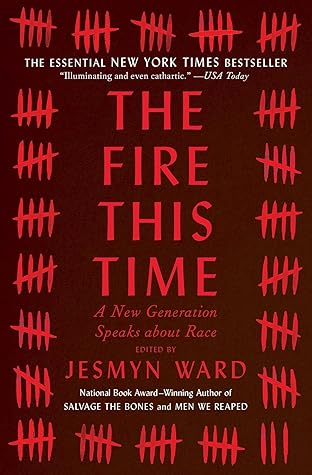More on this book
Community
Kindle Notes & Highlights
by
Jesmyn Ward
Started reading
November 27, 2017
If I knew anything about being black in America it was that nothing was guaranteed, you couldn’t count on a thing, and all that was certain for most of us was a black death. In my mind, a black death was a slow death, the accumulation of insults, injuries, neglect, second-rate health care, high blood pressure and stress, no time for self-care, no time to sigh, and in the end, the inevitable, the erasing of memory.
There was a lynching every four days in the early decades of the twentieth century. It’s been estimated that an African American is now killed by police every two to three days.
From this, we have learned that the journey is far from over and that we must know our history to gain strength for the days ahead. We must love ourselves even if—and perhaps especially if—others do not. We must keep our faith even as we work to make our country live up to its creed. And we must know deep in our bones and in our hearts that if the ancestors could survive the Middle Passage, we can survive anything.
Why wouldn’t they love each other? American people of African descent did fall in love back then, and, if allowed by local power structures, they legally married. They did this in the midst of war, slavery, economic chaos, and/or posttraumatic stress over being torn from their homelands and sent over the horrific Middle Passage. I think it’s logical to assume that many, many black folk fell in love with many, many other black folk. This assumption is a rational consequence of acknowledging black humanity.
Instead, white rage carries an aura of respectability and has access to the courts, police, legislatures, and governors, who cast its efforts as noble, though they are actually driven by the most ignoble motivations.
I remembered that in choosing to identify as black, to write about black characters in my fiction and to assert the humanity of black people in my nonfiction, I’ve remained true to my personal history, to my family history, to my political and moral choices, and to my essential self: a self that understands the world through the prism of being a black American, and stands in solidarity with the people of the African diaspora.
Blackness too often veers between two poles in the public eye: opaqueness and invisibility.
The persecution complex, the past lawsuits (when she was white) against a historically black institution like Howard University no less, seem like the whitest thing ever. It’s like when you are with a white friend and they experience racism, likely for the first time, alongside you: they usually go wild, protesting no one and everyone; you shrug as much as shout. Some things are just part of the daily dose of being black. The cab will drive away with a white friend in it rather than drive you too. It’s dealing with blackness that black people have perfected—or at least gotten practiced at.
I’m going to tell Grandmama that because of her, I know what it’s like to be loved responsibly. I’m going to tell her that her love helped me listen, remember, and imagine when I never wanted to listen, remember, or imagine again. I’m going to read the last paragraph of this piece to her, and when Grandmama hugs my neck, I’m going to tell her that when no one in the world believed I was a beautiful Southern black boy, she believed. I’m going to tell Grandmama that her belief is the only reason I’m still alive, that belief in black Southern love is why we work.
Mobley’s refusal to keep private grief private allowed a body that meant nothing to the criminal-justice system to stand as evidence. By placing both herself and her son’s corpse in positions of refusal relative to the etiquette of grief, she “disidentified” with the tradition of the lynched figure left out in public view as a warning to the black community, thereby using the lynching tradition against itself. The spectacle of the black body, in her hands, publicized the injustice mapped onto her son’s corpse. “Let the people see what I see,” she said, adding, “I believe that the whole United
...more
In the words of the playwright Lorraine Hansberry, “The problem is we have to find some way with these dialogues to show and to encourage the white liberal to stop being a liberal and become an American radical.”


